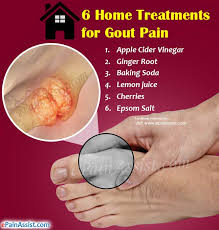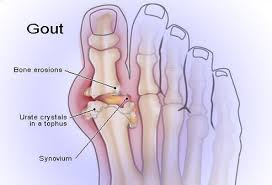Treating gout is really important.In most cases, your regular doctor can treat your gout. If you have severe complications or develop chronic tophaceous gout, your doctor may refer you to a rheumatologist. This type of doctor specializes in arthritis.
Your doctor’s prescribed treatment plan will depend on the stage and severity of your gout. Your doctor may prescribe:
- Colchicine to reduce pain.
- nonsteroidal anti-inflammatory drugs (NSAIDs), such as ibuprofen or naproxen, to reduce inflammation and pain in your joint
- corticosteroids, such as prednisone, to reduce inflammation and pain in your joint
- medications to reduce your body’s production of uric acid, such as allopurinol
- medications to help your body eliminate uric acid, such as probenecid

Along with medications, your doctor may recommend lifestyle changes to help manage your symptoms and reduce your risk of future gout attacks. For example, they may encourage you to:
- Adjust your diet[1]
- reduce your alcohol intake
- lose weight
- quit smoking.
Complications of gout
If left untreated, gout can eventually cause tophi to develop near your inflamed joints. This can lead to arthritis, a painful condition in which your joint is permanently damaged and swollen gout.

Preventing gout:
You can take many steps to help prevent gout. For example:
- limit how much alcohol you drink
- limit how much purine-rich food, such as shellfish, lamb, beef, pork, and organ meat, you eat
- eat a low-fat, nondairy diet that’s rich in vegetables
- lose weight
- stop smoking
- exercise
- stay hydrated
If you have medical conditions or take medications that raise your risk of gout, ask your doctor how you can lower your risk of gout attacks.






